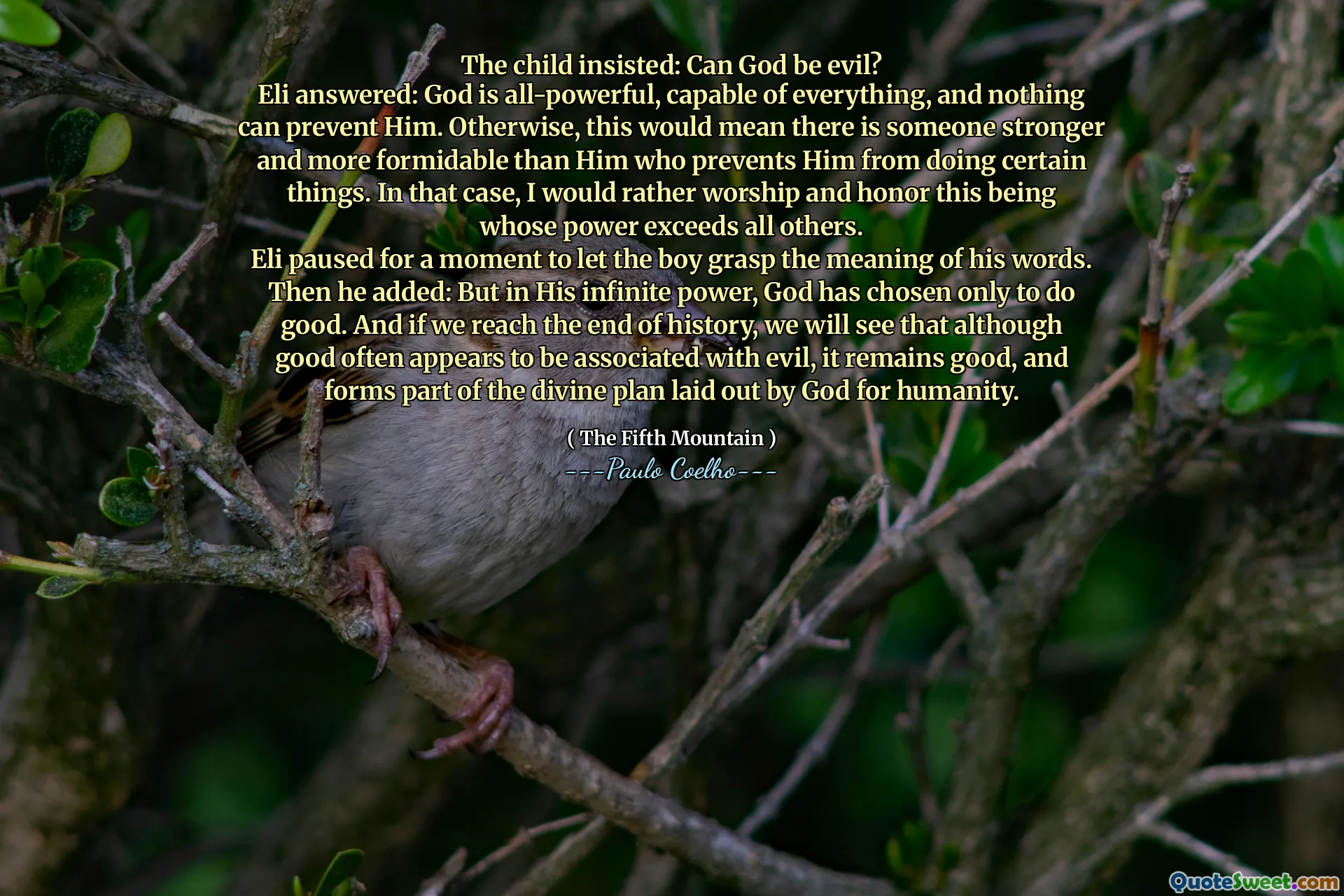
The child insisted: Can God be evil? Eli answered: God is all-powerful, capable of everything, and nothing can prevent Him. Otherwise, this would mean there is someone stronger and more formidable than Him who prevents Him from doing certain things. In that case, I would rather worship and honor this being whose power exceeds all others. Eli paused for a moment to let the boy grasp the meaning of his words. Then he added: But in His infinite power, God has chosen only to do good. And if we reach the end of history, we will see that although good often appears to be associated with evil, it remains good, and forms part of the divine plan laid out by God for humanity.
This quote delves into the fundamental nature of divine omnipotence and the problem of evil—a philosophical dilemma that questions how an all-powerful, benevolent God can permit evil and suffering in the world. The child's question highlights a common human curiosity—how can a perfect and good deity possibly allow acts or presence of evil? Eli's response affirms that God's omnipotence is absolute; nothing can prevent or limit His power, thus dismissing the notion that an entity stronger than God could exist. However, Eli emphasizes that God's power is directed solely toward good deeds, suggesting a divine preference and moral boundaries that prevent evil from being arbitrarily imposed by God Himself. The idea that good can be intertwined with apparent evil, or that certain events may seem evil but ultimately serve a greater good, aligns with the broader concept of divine providence. This perspective offers reassurance that, despite apparent chaos or suffering, there exists a divine logic and benevolence guiding history and human existence. It invites believers to trust in a divine plan where apparent evil is a part of a larger good, which may only be visible at the end of time. The emphasis on divine choice and moral action encourages us to reflect on the importance of understanding and aligning ourselves with a higher purpose, even amidst suffering and moral ambiguity.






